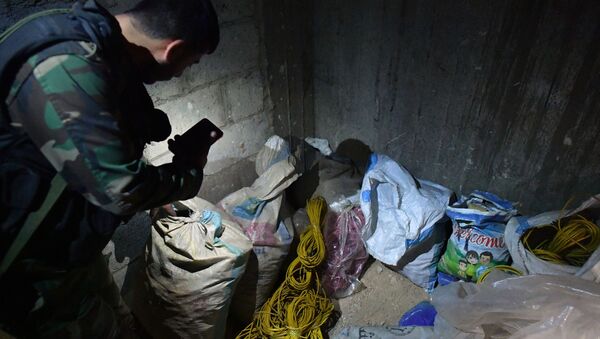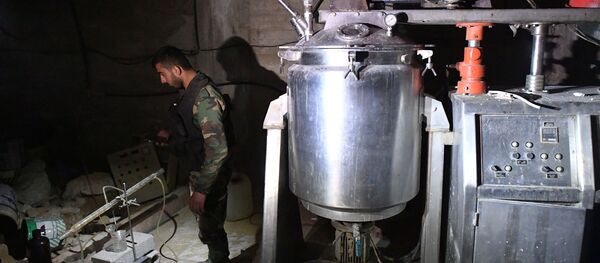"During the examination of the chemical laboratory a lot of hexamin was discovered, which is yet more proof that militants had been producing chemical weapons," a specialist of Russia's radiological, chemical and biological defense corps, Alexander Rodionov, told journalists on April 20.
He explained that the substance is used for making explosives, as well as sarin-type nerve agents.
On April 17, Russian servicemen found a laboratory in Douma which could have been used by terrorists to manufacture chemical weapons. A former member of the UN’s biological commission told Sputnik that it was "highly likely" that the lab's equipment was made in Germany or the UK.
Russia and Syria have maintained that the incident was a false flag attack, a provocation serving to justify aggression against the sovereign state, and have called for an investigation. At the same time, the claims of the "attack" were disproved by a boy whom the White Helmets presented as a victim, his father, a hospital's staff and Russian specialists who established that there was no trace of poisoning in the area.
A month before the Douma false flag attack and the ensuing strike, the Russian General Staff had warned about such a development.



